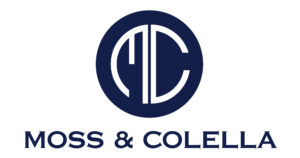
Media contact: Barbara Fornasiero, EAFocus Communications, 248.260.8466; barbara@eafocus.com
Southfield, Mich. — December 3, 2021 — A. Vince Colella, co-founding partner and personal injury and civil rights law firm Moss & Colella, P.C., offered key insights into the law and school shootings and parent responsibility.
Parental Responsibility Act (“PRA”)
MCL 600.2913 states, “A municipal corporation, county, township, village, school district, department of the state, person, partnership, corporation, association, or an incorporated or unincorporated religious organization may recover damages in an amount not to exceed $2,500 in a civil action in a court of competent jurisdiction against the parents or parent of an unemancipated minor, living with his or her parents or parent, who has maliciously or willfully destroyed real, personal, or mixed property which belongs to the municipal corporation, county, township, village, school district, department of the state, person, partnership, corporation, association, or religious organization incorporated or unincorporated or who has maliciously or willfully caused bodily harm or injury to a person.”
Despite PRA, Colella says, “There is case law that suggests that parents may be held liable if they have knowledge that the child has a propensity for committing a violent act and fails to take any measures to protect against it.” He cites the following:
- Plaintiff could not merely allege vicarious responsibility for the tortious acts of the child but was required to allege negligent conduct on the part of the parents themselves. Dortman v Lester, 380 Mich 80, 84; 155 NW2d 846 (1968).
- Parents may be held liable for failing to exercise the control necessary to prevent their children from intentionally harming others if they know or have reason to know of the necessity [***6] and opportunity for doing so. ; American States Ins Co v Albin, 118 Mich App 201, 206; 324 NW2d 574 (1982), lv den 417 Mich 955 (1983).
- Liability for negligent supervision will not lie where supervision would not have made the parents aware of their child’s tortious propensities. Muma v Brown, 378 Mich 637, 645; 148 NW2d 760 (1967). Zapalski v. Benton, 178 Mich. App. 398, 403, 444 N.W.2d 171, 173 (1989).
“In the Oxford case, if the parents were aware of their child’s social media posts or had other information that would lead a reasonable parent to believe that their child intended to bring harm to the Oxford school students, they could be held accountable under the law for the damages their child caused beyond the $2,500 limit under the PRA.”
Colella continues that from an insurance coverage standpoint, most homeowners’ policies have an “intentional acts” exclusion. Meaning, that if the underlying act that caused the harm, i.e., firing the weapon, is found to be intentional, the exclusion would apply, leaving no insurance coverage to pay the damages caused by the parent’s negligence.
School Immunity
“To hold the school liable for the injury and death of its students, the families would have to allege and prove ‘gross negligence’ to get around government immunity,” Colella said. “More specifically, the families would have to establish that specific faculty or administrators’ conduct ‘was so reckless as to demonstrate a substantial lack of concern for whether an injury results.’”
Generally, a lack of supervision does not give rise to gross negligence. In this case, Colella said the families would have to demonstrate that the faculty and/or administrators were aware that Ethan posed a danger to the students and simply failed to take any precautionary measures to protect against the harm. Awareness must be specific. A general thought or suspicion would not rise to the level of scienter (knowledge of the potential wrongful act) required to establish gross negligence. The school officials must have had real and credible information that the shooter was armed, or likely to be armed with an intent to cause harm to the students.
“If gross negligence can be established, the families would still have to overcome the ‘proximate cause’ hurdle,” Colella said. “Under Robinson v City of Detroit, the state law claim of gross negligence requires that a showing of gross negligence was ‘the’ proximate cause of the harm. ‘The’ proximate cause is defined as the ‘most direct and efficient’ conduct or action that resulted in the injuries or death. In a shooting case, ‘the’ proximate cause is likely going to be the pulling of the trigger. Because the school did not pull the trigger, it will be able to argue that it could not possibly be ‘the’ proximate cause of the injuries and death of its students.”
About Moss & Colella
Established in 1997, Moss & Colella represents the victims of personal injury, civil rights violations, discrimination, medical malpractice and wrongful death. The firm is recognized as a leader in complex tort litigation, including excess and deadly force, jail death, sexual abuse and harassment, auto and truck accidents, motorcycle accidents and other serious injury and wrongful death claims. To learn more about the firm and its diverse areas of practice, visit www.mosscolella.com.
###


